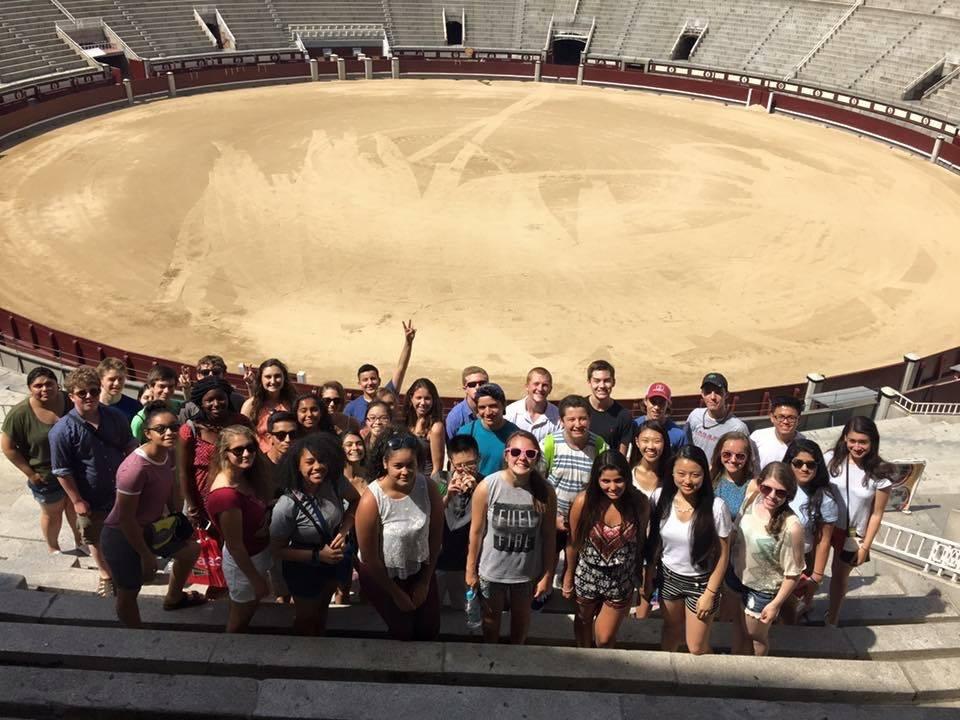
By Matthew Redman
I’ll bet most people don’t think of world travel as a way to help to solve the world’s conflicts. But being a citizen diplomat is the No. 1 reason to travel for me.
1. Being a citizen diplomat
Traveling the world is part of my job. Every day I help students fulfill their dreams of global travel.
I started traveling internationally in my teens. I’d suggest every individual start their global travels as soon as they are ready for an adventure past their state line. Study abroad is no longer just for college students. It’s growing more popular for younger teens. Research indicates these experiences help students to be more successful in college and life.
I see firsthand the exciting transformations in students who have the world as their classroom in CIEE High School Abroad programs. By living with host families in the country, they immerse themselves in another culture and language. They gain understanding and respect for that culture. It’s a two-way street. By sharing a home, people share cultures and defeat stereotypes.
2. Develop as a person
When you study abroad in another country, you push your personal boundaries to grow as an individual. You often deal with a different language, different customs and different means of transportation. Away from familiar support networks, you take on more responsibility, independence and learn resiliency. Students say study abroad helps develop self-confidence.
3. Prepare for a global future
The book "Educating for Global Competence: Preparing Our Youth to Engage the World," the Asia Society observes:
“Young people need to understand the worldwide circulation of ideas, products, fashions, media, ideologies, and human beings. These phenomena are real, powerful, ubiquitous. By the same token, those growing up in the world of today— and tomorrow! —need preparation to tackle the range of pervasive problems: human conflict, climate change, poverty, the spread of disease, the control of nuclear energy.”
By seeing the world, you have the opportunity to understand perspectives on issues that may similar to your own or may be very different.
4. Acquire global competencies
In addition to having a global, more compassionate perspective, you build skills to make you more attractive to future employers. Employers seek out individuals who are comfortable working in a diverse environment and able to incorporate different viewpoints.
5. Increase maturity
Students often use summer study abroad for independent exploration. This period away from the classroom and routine activities allows students time to reflect and grow. Parents report a dramatic transformation during these short-term programs as their children return stronger and more independent.
6. Gap to grow
Take a time-out like presidential daughter Malia Obama with a gap year between high school and college. This pause between high school and college allows students to get off the high-achievement merry-go-round and have time for themselves.
Many say it’s the first opportunity they’ve had to discover who they are as a person and what they want out of life. A gap year doesn’t have to occur far from home, but has added advantages when a different culture is added into the mix.
7. Sharpen focus
Study abroad allows time for renewal. For example, the majority of students who take a planned, structured gap year return to college within six months with a reignited passion for learning and the ability to contextualize formal education using their "real-world” experiences. Many colleges recognize the benefits of a gap year.
8. Increase readiness for college
Students who take a gap year are more likely to finish college in four years than those who enroll directly after high school. They also have higher GPAs and tend to be more focused. A study by Karl Haigler and Rae Nelson, authors of "The Gap Year Advantage," found that 60 percent of gap year participants said the experience influenced or confirmed their choice of major.
9. New perspective on home
You don’t know what you’ve got till it’s gone, the song says. Students who study internationally see their hometowns differently when they return. Their experiences abroad cause them to see controversial issues at home like immigration in a new light. Many students say it inspired them to volunteer in their local community.
10. Make lifelong friends and memories
The friendships formed can last a lifetime. I know. I went on my first international trip right after high school.
How can you make study abroad travel happen, especially at a younger age? It starts with you. The best resource is real life. Ask friends and family about their international travel experiences, how they made intercultural experiences a reality, and what they learned from unexpected experiences. Students, their families and school counselors should consider the student’s goals and desired experiences for the year.
The keys to a successful study abroad experience in high school is to identify a program meets those goals and to set up a structure to keep things on track. Look carefully into study abroad programs to find high-quality offerings that provide the desired cultural and learning experiences. Check out what others who have attended the program are saying. For example, CIEE gap year students blog about their experiences while studying abroad. You can also see ideas from the American Gap Association.
Image courtesy of CIEE
Matthew Redman is CIEE Vice President for Global High School and Teach Abroad.
TriplePundit has published articles from over 1000 contributors. If you'd like to be a guest author, please get in touch!














